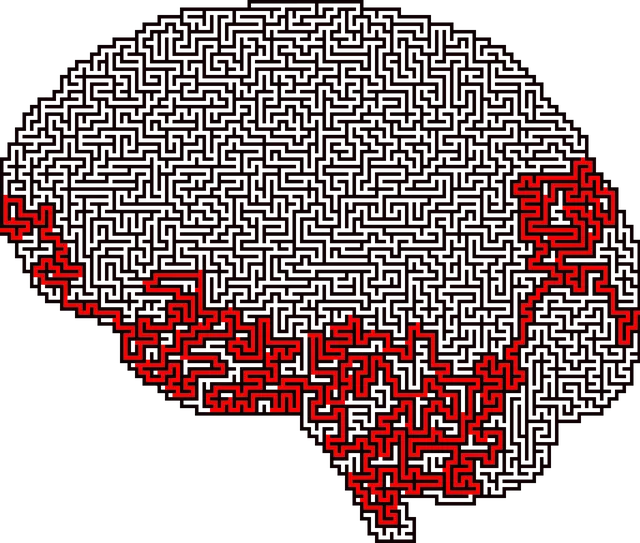Kaiser Permanente Mental Health Denver prioritizes accurate diagnoses for effective treatment, addressing challenges like complex symptoms and increasing demand through advanced training, evidence-based tools, and community outreach. They integrate data analytics with personalized care, empower individuals with resilience programs and awareness campaigns, and measure success through patient satisfaction, symptom tracking, and coping mechanism improvements.
Mental illness diagnosis accuracy is a critical aspect of patient care, especially at large healthcare organizations like Kaiser Permanente Mental Health Denver. This article delves into the significance of precise diagnoses and explores the current challenges faced by professionals at Kaiser Permanente. We present innovative strategies to enhance diagnostic precision, emphasizing training and education programs for clinical staff. Additionally, we discuss evaluation metrics used to measure success in accurately diagnosing mental illness within this renowned healthcare network.
- Understanding the Significance of Diagnosis Accuracy at Kaiser Permanente Mental Health Denver
- Current Challenges in Diagnosing Mental Illness: A Focus on Kaiser Permanente's Perspective
- Innovative Strategies to Enhance Diagnostic Precision: The Kaiser Permanente Approach
- Training and Education Programs for Clinical Staff: A Key to Improvement
- Measuring Success: Evaluation Metrics for Accurate Mental Illness Diagnosis
Understanding the Significance of Diagnosis Accuracy at Kaiser Permanente Mental Health Denver

At Kaiser Permanente Mental Health Denver, diagnosis accuracy is more than just a statistical concern; it’s a cornerstone of patient care and treatment effectiveness. Accurate diagnoses are vital for providing personalized and effective mental health services. Misdiagnoses can lead to inappropriate treatments, causing potential harm and hindering recovery, especially in managing complex conditions where symptoms overlap. Therefore, efforts to enhance diagnosis accuracy are comprehensive, encompassing advanced training for healthcare professionals, evidence-based assessment tools, and continuous quality improvement initiatives.
The organization prioritizes patient-centered care by empowering individuals with coping skills development and self-esteem improvement strategies. Additionally, the implementation of a robust Community Outreach Program helps bridge gaps between patients and mental health services, ensuring that diverse communities have access to accurate information and timely interventions. These initiatives collectively contribute to improving diagnosis accuracy, ultimately fostering better outcomes for individuals navigating their mental health journeys at Kaiser Permanente Mental Health Denver.
Current Challenges in Diagnosing Mental Illness: A Focus on Kaiser Permanente's Perspective

Diagnosing mental illness accurately is a complex challenge facing healthcare systems worldwide, including Kaiser Permanente in Denver. With an increasing demand for mental health services and a growing awareness of the impact of mental wellness on overall health, the need for precise diagnoses has never been more pressing. However, several factors contribute to the current difficulties in this area.
Kaiser Permanente Denver recognizes that cultural sensitivities, comorbidity of conditions, and individual patient presentations make diagnosis intricate. They are actively involved in initiatives aimed at improving accuracy, such as integrating advanced data analytics and personalized care models. The organization also emphasizes resilience-building and coping skills development through their Mental Wellness Podcast Series Production, aiming to empower individuals to navigate their mental health journeys effectively.
Innovative Strategies to Enhance Diagnostic Precision: The Kaiser Permanente Approach

In an era where mental health awareness is ever-evolving, organizations like Kaiser Permanente Denver are at the forefront of revolutionizing diagnostic practices. Their approach emphasizes a multifaceted strategy to enhance the accuracy and reliability of mental illness diagnoses. One key component involves integrating advanced data analytics and evidence-based practices, ensuring that healthcare professionals have access to comprehensive patient information and the latest research insights.
Additionally, Kaiser Permanente has recognized the power of community engagement and Public Awareness Campaigns Development. By educating the public about various mental health conditions and promoting open conversations, they aim to reduce stigma and encourage early intervention. This holistic method combines sophisticated technology with community outreach, ultimately contributing to improved Mood Management and Stress Management strategies on a broader scale.
Training and Education Programs for Clinical Staff: A Key to Improvement

At Kaiser Permanente mental health Denver, we recognize that the accuracy of mental illness diagnoses is a critical aspect of patient care and treatment outcomes. To this end, extensive Training and Education Programs have been implemented for clinical staff. These programs focus on enhancing diagnostic skills, staying updated with the latest research and best practices, and improving communication strategies to foster more accurate assessments.
Through ongoing workshops, seminars, and interactive sessions, clinical staff gain insights into advanced diagnosis techniques, including Crisis Intervention Guidance, Mood Management, and Confidence Boosting strategies. Such initiatives not only elevate the expertise of healthcare professionals but also ensure patients receive tailored care plans based on precise diagnoses. This holistic approach, combined with a supportive learning environment, contributes to improved patient outcomes and satisfaction.
Measuring Success: Evaluation Metrics for Accurate Mental Illness Diagnosis

Measuring success in mental illness diagnosis accuracy is paramount for organizations like Kaiser Permanente’s mental health services in Denver. Evaluation metrics should go beyond simple diagnostic rates to capture the nuances of effective care. One key metric could be patient satisfaction, gauged through regular feedback surveys, to ensure that individuals feel heard, respected, and understood throughout the evaluation process. Another important measure is the alignment between diagnosis and treatment plan, tracking how well recommended therapies address the specific needs identified in the assessment.
Furthermore, the Mental Wellness Journaling Exercise Guidance can offer valuable insights into symptom trends and treatment effectiveness over time. Inner Strength Development through therapeutic interventions should also be evaluated, demonstrating improved coping mechanisms and resilience among patients. Effective communication strategies, encouraged by professionals, can enhance patient engagement and trust, leading to more accurate diagnoses and better adherence to care plans.
Efforts to improve mental illness diagnosis accuracy, as highlighted by Kaiser Permanente Mental Health Denver’s initiatives, are pivotal in ensuring effective patient care. By addressing current challenges through innovative strategies, training programs, and robust evaluation metrics, Kaiser Permanente is leading the way in enhancing diagnostic precision. These efforts not only benefit individual patients but also contribute to a more comprehensive understanding of mental health within the organization and beyond, ultimately fostering better outcomes for all individuals seeking mental health services at Kaiser Permanente Mental Health Denver.






